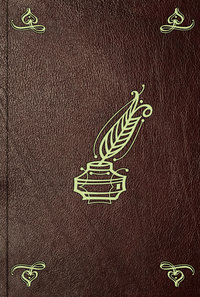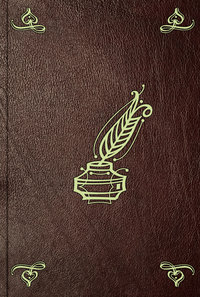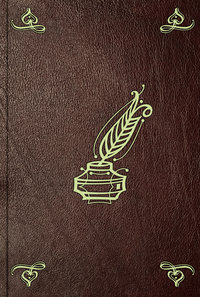 полная версия
полная версияThe Works of John Dryden, now first collected in eighteen volumes. Volume 18
These reasons therefore, as they make nothing against his being an atheist, so they prove nothing of his believing one God; but only leave him as they found him, and leave us in as great an obscurity concerning his religion as before. I may be as much mistaken in my opinion as these great men have been before me; and this is very probable, because I know less of him than they; yet I have read him over more than once, and therefore will presume to say, that I think him either one of the Eclectic44 school, or else a Sceptic: I mean, that he either formed a body of philosophy for his own use out of the opinions and dogmas of several heathen philosophers, disagreeing amongst themselves, or that he doubted of every thing; weighed all opinions, and adhered to none of them; only used them as they served his occasion for the present dialogue, and perhaps rejected them in the next. And indeed this last opinion is the more probable of the two, if we consider the genius of the man, whose image we may clearly see in the glass which he holds before us of his writings, which reflects him to our sight.
Not to dwell on examples, with which his works are amply furnished, I will only mention two. In one, Socrates convinces his friend Chærephon of the power of the gods in transformations, and of a supreme Providence which accompanies that power in the administration of the world. In another, he confutes Jupiter, and pulls him down from heaven to earth, by his own Homerical chain; and makes him only a subservient slave to blind eternal fate. I might add, that he is, in one half of his book, a Stoic, in the other an Epicurean; never constant to himself in any scheme of divinity, unless it be in despising his gentile gods. And this derision, as it shews the man himself, so it gives us an idea of the age in which he lived; for if that had been devout or ignorant, his scoffing humour would either have been restrained, or had not passed unpunished; all knowing ages being naturally sceptic, and not at all bigotted; which, if I am not much deceived, is the proper character of our own.
To conclude this article: He was too fantastical, too giddy, too irresolute, either to be any thing at all, or any thing long; and in this view I cannot think he was either a steady atheist, or a deist, but a doubter, a sceptic, as he plainly declares himself to be, when he puts himself under the name of Hermotimus the Stoic, in the dialogue called the “Dialogue of the Sects.”
As for his morals, they are spoken of as variously as his opinions. Some are for decrying him more than he deserves; his defenders themselves dare not set him up for a pattern of severe virtue. No man is so profligate, as openly to profess vice; and therefore it is no wonder, if under the reign of Nerva, Trajan, Hadrian, and the two Antonines, of which the last was his patron and benefactor, he lived not so much a libertine as he had it to be in his nature. He is more accused for his love of boys than of women. Not that we have any particular story to convince us of this detestable passion in him; but his own writings bear this record against him, that he speaks often of it, and I know not that ever he condemns it. Repeated expressions, as well as repeated actions, witness some secret pleasure in the deed, or at least some secret inclination to it. He seems to insinuate, in his “Dialogue of Loves,” that Socrates was given to this vice; but we find not that he blames him for it, which, if he had been wholly innocent himself, it became a philosopher to have done. But as we pass over a foul way as hastily as we can, so I will leave this abominable subject, which strikes me with horror when I name it.
If there be any who are guilty of this sin, we may assure ourselves they will never stop at any other; for when they have overleaped the bounds of nature, they run so fast to all other immoralities, that the grace of God, without a miracle, can never overtake them.
Lucian is accused likewise for his writing too lusciously in his “Dialogue of the Harlots.”45 It has been the common fault of all satirists, to make vice too amiable, while they expose it; but of all men living, I am the most unfit to accuse Lucian, who am so little able to defend myself from the same objection. We find not, however, that Lucian was charged with the wantonness of his “Dialogues” in his own life-time. If he had been, he would certainly have answered for himself, as he did to those who accused him for exposing Socrates, Plato, Diogenes, and other great philosophers, to the laughter of the people, when Jupiter sold them by an inch of candle. But, to confess the truth, [as] I am of their opinion, who think that answer of his not over-ingenuous, viz. that he only attacked the false philosophers of their sects, in their persons whom he honoured; so I am persuaded, that he could not have alleged more in his excuse for these “Dialogues,” than that as he taught harlots to deceive, so, at the same time, he discovered their deceits to the knowledge of young men, and thereby warned them to avoid the snare.
I find him not charged with any other faults, than what I have already mentioned. He was otherwise of a life as unblameable as any man, for aught we find to the contrary: and I have this probable inducement to believe it, because he had so honourable an employment under Marcus Aurelius, an emperor as clear-sighted as he was truly virtuous; for both which qualities we need not quote Lucian, who was so much obliged to him, but may securely appeal to Herodian, and to all the historians who have written of him, – besides the testimony of his own admirable works, which are yet in the hands of all the learned.
As for those who condemn our author for the too much gall and virulency of his satires, it is to be suspected, says Dr Mayne, that they themselves are guilty of those hypocrisies, crimes, and follies, which he so sharply exposes, and at the same time endeavours to reform. I may add, that, for the most part, he rather laughs like Horace, than bites like Juvenal. Indeed his genius was of kin to both, but more nearly related to the former. Some diseases are curable by lenitives; to others corrosives are necessary. Can a man inveigh too sharply against the cruelty of tyrants, the pride and vanity of the great, the covetousness of the rich, the baseness of the Sophists, and particularly of the Cynics, (who while they preach poverty to others, are heaping up riches, and living in gluttony,) besides the wrangling of the sects amongst themselves about supreme happiness, which he describes at a drunken feast, and calls it the battle of the Lapithæ.
Excepting what already is excepted, he seems to me to be an enemy to nothing but to vice and folly. The pictures which he draws of Nigrinus and of Demonax are as fair as that of virtue herself, if, as the philosopher said, she could wear a body. And if we oppose to them the lives of Alexander the false prophet, and of Peregrinus, how pleasingly, and with how much profit, does the deformity of the last set off the beauty of the first!
Some of his censurers accuse him of flatness and want of wit in many places. These I suppose have read him in some Latin translations, which I confess, are generally dull; and this is the only excuse I can make for them. Otherwise they accuse themselves too manifestly for want of taste or understanding. Of this number is the wretched author of the Lucien en Belle Humeur, who being himself as insipid as a Dutch poet, yet arraigns Lucian for his own fault; introduces the ghost of Ablancourt, confessing his coldness in many places, the poorness of his thoughts, and his want of humour; represents his readers tired and yawning at his ill buffoonery and false mirth, and sleeping over his melancholic stories, which are every where stuffed with improbabilities. He could have said no worse of a Leyden slip.46
The best on it is, the jaundice is only in his own eyes, which makes Lucian look yellow to him. All mankind will exclaim against him for preaching this doctrine; and be of opinion when they read his Lucian, that he looked in a glass when he drew his picture. I wish I had the liberty to lash this frog-land wit as he deserves; but when a speech is not seconded in parliament, it falls of course; and this author has the whole senate of the learned to pull him down: incipient omnes pro Cicerone loqui.
It is to be acknowledged, that his best translator, Ablancourt, thinks him not a profound master in any sort of philosophy; but only that he skimmed enough from every sect, to serve his turn in rhetoric, which was his profession. This he gathers from his superficial way of arguing. But why may not another man reply in his defence, that he made choice of those kinds of reasons which were most capable of being made to shine in his facetious way of arguing; and those undoubtedly were not the most knotty, nor the deepest, but the most diverting by the sharpness of the raillery. Dr Mayne, so often praised, has another opinion of Lucian’s learning, and the strength of his witty arguments, concluding on that subject in these words, or near them: “For my part, I know not to whose writings we owe more our Christianity, where the true God has succeeded a multitude of false, – whether to the grave confutation of Clemens Alexandrinus, Arnobius, Justin Martyr, St. Augustin, Lactantius, &c. or the facetious wit of Lucian.” – I cannot doubt but the treacherous translator would have given his hand to what the Englishman has said of their common author. The success has justified his opinion in the sight of all the world. Lucian’s manner of convincing, was certainly more pleasant than that of the Christian writers, and we know the effect was full as powerful; so easily can the Eternal Wisdom draw good out of evil, and make his enemy subservient to the establishment of his faith.
I will not enlarge on the praises of his oratory. If we compare his style with the Greek historians, his contemporaries, or near his time, we shall find it much more pure than that of Plutarch, Dion, or Appian, though not so grave; because his subjects and theirs required to be treated after a different manner. It was not of an uniform web, says Mayne, like Thucydides, Polybius, and some others whom he names, but was somewhat peculiar to himself; his words well chosen, his periods round, the parts of his sentences harmoniously divided, a full flood or even a torrent of persuasion, without inequalities or swellings; such as might be put in equal comparison with the best orations of Demosthenes or Isocrates; not so dry as the first, nor so flowery as the last. His wit, says Ablancourt, was full of urbanity, that attic salt, which the French call, fine raillery; not obscene, not gross, not rude, but facetious, well mannered, and well bred: only he will not allow his love the quality last mentioned, but thinks it rustical, and according either to his own genius, or that of the age in which he lived.
If wit consists in the propriety of thoughts and words, (which I imagined I had first found out, but since am pleasingly convinced that Aristotle has made the same definition in other terms,) then Lucian’s thoughts and words are always proper to his characters and his subject. If the pleasure arising from comedy and satire be either laughter, or some nobler sort of delight, which is above it, no man is so great a master of irony as our author. That figure is not only a keen, but a shining weapon in his hand; it glitters in the eyes of those it kills; his own gods, his greatest enemies, are not butchered by him, but fairly slain: they must acknowledge the hero in the stroke, and take the comfort which Virgil gives to a dying captain:
Æneæ magni dextrâ cadis.I know not whom Lucian imitated, unless it might be Aristophanes; (for you never find him mentioning any Roman wit, so much the Grecians thought themselves superior to their conquerors;) but he, who has best imitated him in Latin, is Erasmus; and in French, Fontenelle, in his “Dialogues of the Dead,” which I never read but with a new pleasure.
Any one may see, that our author’s chief design was to dis-nest heaven of so many immoral and debauched deities; his next, to expose the mock philosophers; and his last, to give us examples of a good life in the persons of the true.
The rest of his discourses are on mixed subjects, less for profit than delight; and some of them too libertine.
The way which Lucian chose of delivering these profitable and pleasing truths, was that of dialogue: a choice worthy of the author; happily followed, as I said above, by Erasmus, and Fontenelle particularly, to whom I may justly add a triumvir of our own, – the reverend, ingenious, and learned Dr Eachard,47 who, by using the same method, and the same ingredients of raillery and reason, has more baffled the philosopher of Malmesbury, than those who assaulted him with blunt heavy arguments, drawn from orthodox divinity; for Hobbes foresaw where those strokes would fall, and leaped aside before they could descend; but he could not avoid those nimble passes, which were made on him by a wit more active than his own, and which were within his body, before he could provide for his defence.
I will not here take notice of the several kinds of dialogue, and the whole art of it, which would ask an entire volume to perform. This has been a work long wanted, and much desired, of which the ancients have not sufficiently informed us; and I question whether any man now living can treat it accurately. Lucian, it seems, was very sensible of the difficult task, which he undertook in writing dialogues, as appears in his discourse against one who had called him Prometheus. He owns himself, in this particular, to be like to him, to whom he was resembled, to be the inventor of a new work, attempted in a new manner, – the model of which he had from none before him; but adds withal, that if he could not give it the graces which belong to so happy an invention, he deserves to be torn by twelve vultures, instead of one, which preys upon the heart of that first man-potter. For, to quit the beaten road of the ancients, and take a path of his own choosing, he acknowledges to be a bold and ridiculous attempt, if it succeed not. “The mirth of dialogue and comedy in my work,” says he, “is not enough to make it pleasing, because the union of two contraries may as well produce a monster as a miracle; as a centaur results from the joint natures of a horse and man. It is not but that from two excellent beings a third may arise of perfect beauty; but it is what I dare not promise to myself; for dialogue being a solemn entertainment of grave discourse, and comedy the wit and fooling of a theatre, I fear that through the corruption of two good things, I have made one bad. But whatever the child be, it is my own at least; I beg not with another’s brat upon my back. From which of the ancients should I have stolen or borrowed it? My chimeras have no other being than my own imagination; let every man produce who can; and whether this be a lawful birth, or a misshapen mass, is left for the present age, and for posterity, to judge.”
This is the sense of my author’s words contracted in a narrow compass; for, if you will believe Ablancourt, and others, his greatest fault is, that he exhausts his argument, – like Ovid, knows not when to give over, but is perpetually galloping beyond his stage.
But though I cannot pursue our author any farther, I find myself obliged to say something of those translators of the following Dialogues, whom I have the honour to know, as well as of some other translations of this author; and a word or two of translation itself.
As for the translators, all of them, that I know, are men of established reputation, both for wit and learning, at least sufficiently known to be so among all the finer spirits of the age. Sir Henry Sheers has given many proofs of his excellence in this kind; for while we, by his admirable address, enjoy Polybius in our mother tongue, we can never forget the hand that bestowed the benefit. The learning and judgment above his age, which every one discovers in Mr Moyle,48 are proofs of those abilities he has shewn in his country’s service, when he was chose to serve it in the senate, as his father had done. The wit of Mr Blount,49 and his other performances, need no recommendation from me; they have made too much noise in the world to need a herald. There are some other persons concerned in this work, whose names deserve a place among the foremost, but that they have not thought fit to be known, either out of a bashful diffidence of their own performance, or out of apprehension of the censure of an ill-natured and ill-judging age; for criticism is now become mere hangman’s work, and meddles only with the faults of authors; nay, the critic is disgusted less with their absurdities than excellence; and you cannot displease him more than in leaving him little room for his malice, in your correctness and perfection; though that indeed is what he never allows any man; for, like the bed of Procrustes, they stretch or cut off an author to its length. These spoilers of Parnassus are a just excuse for concealing the name, since most of their malice is levelled more at the person than the thing; and as a sure mark of their judgment, they will extol to the skies the anonymous work of a person they will not allow to write common sense.
But this consideration of our modern critics has led me astray, and made me insensibly deviate from the subject before me; the modesty or caution of the anonymous translators of the following work. Whatever the motive of concealing their names may be, I shall not determine; but it is certain, nothing could more contribute to make a perfect version of Lucian, than a confederacy of many men of parts and learning to do him justice. It seems a task too hard for any one to undertake; the burden would indeed be insupportable, unless we did what the French have done in some of their translations, allow twenty years to perfect the work, and bestow all the brightest intervals, the most sprightly hours, to polish and finish the work.50
But this has not been the fate of our author hitherto; for Lucian, that is the sincere example of attic eloquence, as Grævius says of him, is only a mass of solecism, and mere vulgarisms in Mr Spence.51 I do not think it worth my while to rake into the filth of so scandalous a version; nor had I vouchsafed so much as to take notice of it, had it not been so gross an affront to the memory of Lucian, and so great a scandal to our nation. D’Ablancourt has taken a great deal of pains to furnish this intruder into print, with Lucian, in a language more known to him than Greek; nay, he has left him not one crabbed idiom to study for, since he has admirably clothed him in a garb more familiar to the moderns, still keeping the sense of his author in view. But in spite of all these helps, these leading-strings were not sufficient to keep Mr Spence from falling to the ground every step he made; while he makes him speak in the style and language of a jack-pudding, not a master of eloquence, admired for it through all the ages since he wrote. But too much of this trifler.
I have said enough already of the version of the learned Dr Mayne, to shew my approbation of it; but it is only a select parcel of Lucian’s Dialogues which pleased him most, but far from the whole. As for any other translation, if there be any such in our language, it is what I never saw,52 and suppose it must be antiquated, or of so inferior a degree, as not even to rival Spence.
The present translation, as far as I can judge by what I have seen, is no way inferior to Ablancourt’s, and in many things is superior. It has indeed the advantage of appearing in a language more strong and expressive than French, and by the hands of gentlemen who perfectly understand him and their own language.
This has brought me to say a word or two about translation in general; in which no nation might more excel than the English, though, as matters are now managed, we come so far short of the French. There may indeed be a reason assigned, which bears a very great probability; and that is, that here the booksellers are the undertakers of works of this nature, and they are persons more devoted to their own gain than the public honour. They are very parsimonious in rewarding the wretched scribblers they employ; and care not how the business is done, so that it be but done. They live by selling titles, not books; and if that carry off one impression, they have their ends, and value not the curses they and their authors meet with from the bubbled chapmen. While translations are thus at the disposal of the booksellers, and have no better judges or rewarders of the performance, it is impossible that we should make any progress in an art so very useful to an enquiring people, and for the improvement and spreading of knowledge, which is none of the worst preservatives against slavery.
It must be confessed, that when the bookseller has interest with gentlemen of genius and quality, above the mercenary prospects of little writers, as in that of Plutarch’s Lives,53 and this of Lucian, the reader may satisfy himself that he shall have the author’s spirit and soul in the traduction. These gentlemen know very well, that they are not to creep after the words of their author, in so servile a manner as some have done; for that must infallibly throw them on a necessity of introducing a new mode of diction and phraseology with which we are not at all acquainted, and would incur that censure which my Lord Dorset made formerly on those of Mr Spence, viz. that he was so cunning a translator, that a man must consult the original, to understand the version. For every language has a propriety and idiom peculiar to itself, which cannot be conveyed to another without perpetual absurdities.
The qualification of a translator, worth reading, must be, a mastery of the language he translates out of, and that he translates into; but if a deficience be to be allowed in either, it is in the original; since if he be but master enough of the tongue of his author, as to be master of his sense, it is possible for him to express that sense with eloquence in his own, if he have a thorough command of that. But without the latter, he can never arrive at the useful and the delightful; without which reading is a penance and fatigue.
It is true that there will be a great many beauties, which in every tongue depend on the diction, that will be lost54 in the version of a man not skilled in the original language of the author; but then on the other side, first it is impossible to render all those little ornaments of speech in any two languages; and if he have a mastery in the sense and spirit of his author, and in his own language have a style and happiness of expression, he will easily supply all that is lost by that defect.
A translator that would write with any force or spirit of an original, must never dwell on the words of his author. He ought to possess himself entirely, and perfectly comprehend the genius and sense of his author, the nature of the subject, and the terms of the art or subject treated of; and then he will express himself as justly, and with as much life, as if he wrote an original; whereas, he who copies word for word, loses all the spirit in the tedious transfusion.
I would not be understood that he should be at liberty to give such a turn as Mr Spence has in some of his; where for the fine raillery and attic salt of Lucian, we find the gross expressions of Billingsgate, or Moorfields and Bartholomew Fair. For I write not to such translators, but to men capacious of the soul and genius of their authors, without which all their labour will be of no use but to disgrace themselves, and injure the author that falls into their slaughter-house.
I believe I need give no other rules to the reader than the following version, where example will be stronger than precept, to which I now refer them; in which a man justly qualified for a translator will discover many rules extremely useful to that end. But [to] a man who wants these natural qualifications which are necessary for such an undertaking, all particular precepts are of no other use, than to make him a more remarkable coxcomb.
DRYDEN’S LETTERS.
LETTERS OF DRYDEN
The Letters of Dryden, so far as hitherto given to the public, are, with a few exceptions, singularly uninteresting. To the publication of some, which are known to exist, there were found to occur still stronger objections. I have been only able to add one to those collected by Mr Malone; and I was strongly tempted to omit several. There is, however, a satisfaction in seeing how such a man expressed himself, even upon the most trivial occasions; and I have therefore retained those complimentary acknowledgments of turkeys, marrow-puddings, and bacon, which have nothing but such a consideration to recommend them.







